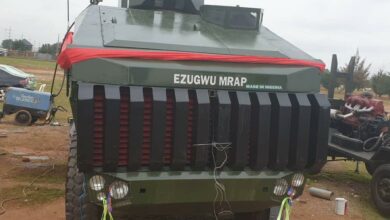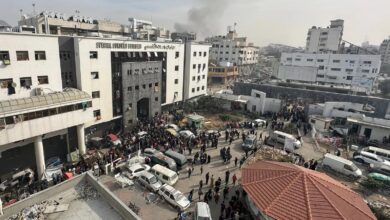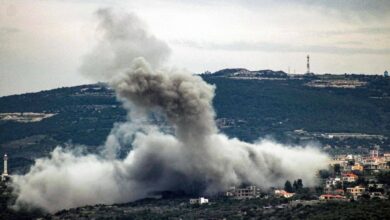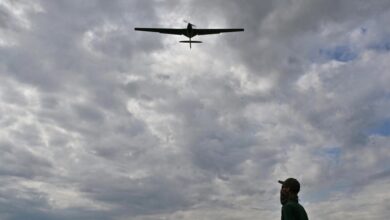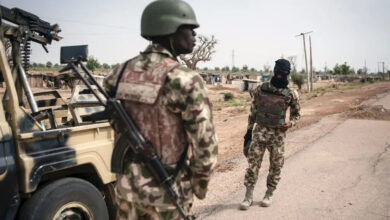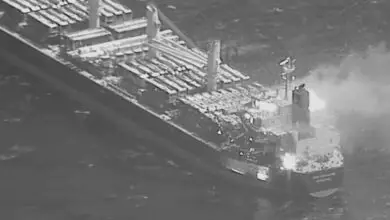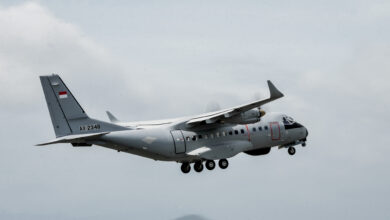Three people were killed and more than 30 were injured in a twin suicide bomb attack in the northeastern Nigerian city of Maiduguri, militia sources and residents told AFP on Sunday.
Two female bombers on Saturday, April 7 detonated their explosives among a crowd in Muna Dalti on the outskirts of Borno state capital Maiduguri, the birthplace of the Boko Haram jihadist group.
“They came around 8:00 pm and detonated their suicide vests,” Umar Ari, a local militia leader, said.
“They killed three people and seriously injured 33 others,” said Ari, who was involved in the evacuation of victims.
Two members of the Civilian Joint Task Force militia and a civilian were killed, according to Bello Dambatta, the Head of the Rapid Response Team of the Borno State Emergency Management Agency, Channels TV reported.
Residents gathered Sunday morning for the funeral of the three victims.
The scene of the bombings, a popular night time venue for residents, has been repeatedly targeted by Boko Haram suicide attacks, said resident Gremah Umar.
The area houses a sprawling camp for thousands of people displaced by violence.
The attacks there were largely blamed on the Boko Haram faction loyal to Abubakar Shekau, infamous for suicide attacks on civilian targets including schools and mosques.
On February 15, Boko Haram insurgents believed to be loyal to Shekau killed at least eight people in a suicide bomb and gun attack in Maiduguri.
Two months earlier, five people were injured when a female suicide bomber detonated her vest at a checkpoint in Maiduguri on December 2. The bomber and an accomplice were killed
The jihadist group known as Boko Haram split into two factions in mid-2016. One led by long-time leader Shekau is notorious for suicide bombings and indiscriminate killings of civilians. Shekau pledged allegiance to ISIS leader Abu Bakr Al-Baghdadi in March 2015, but ISIS central only gives formal backing to the other faction, which it calls Islamic State West Africa province.
The ISWA faction, which largely focuses on attacking military and government targets, was led by Abu Mus’ab Al-Barnawi, but last month, audio recordings revealed that ISIS appointed Abu Abdullah Idris bin Umar, also known as Ibn Umar al-Barnawi, as leader. ISIS has not yet made a public statement confirming the change.
Boko Haram’s bloody insurgency began in northeastern Nigeria in 2009 but has since spread into neighboring Niger, Chad and Cameroon, prompting a regional military response. Some 27,000 people have been killed and two million others displaced, sparking a dire humanitarian crisis in the region.
With reporting from AFP


